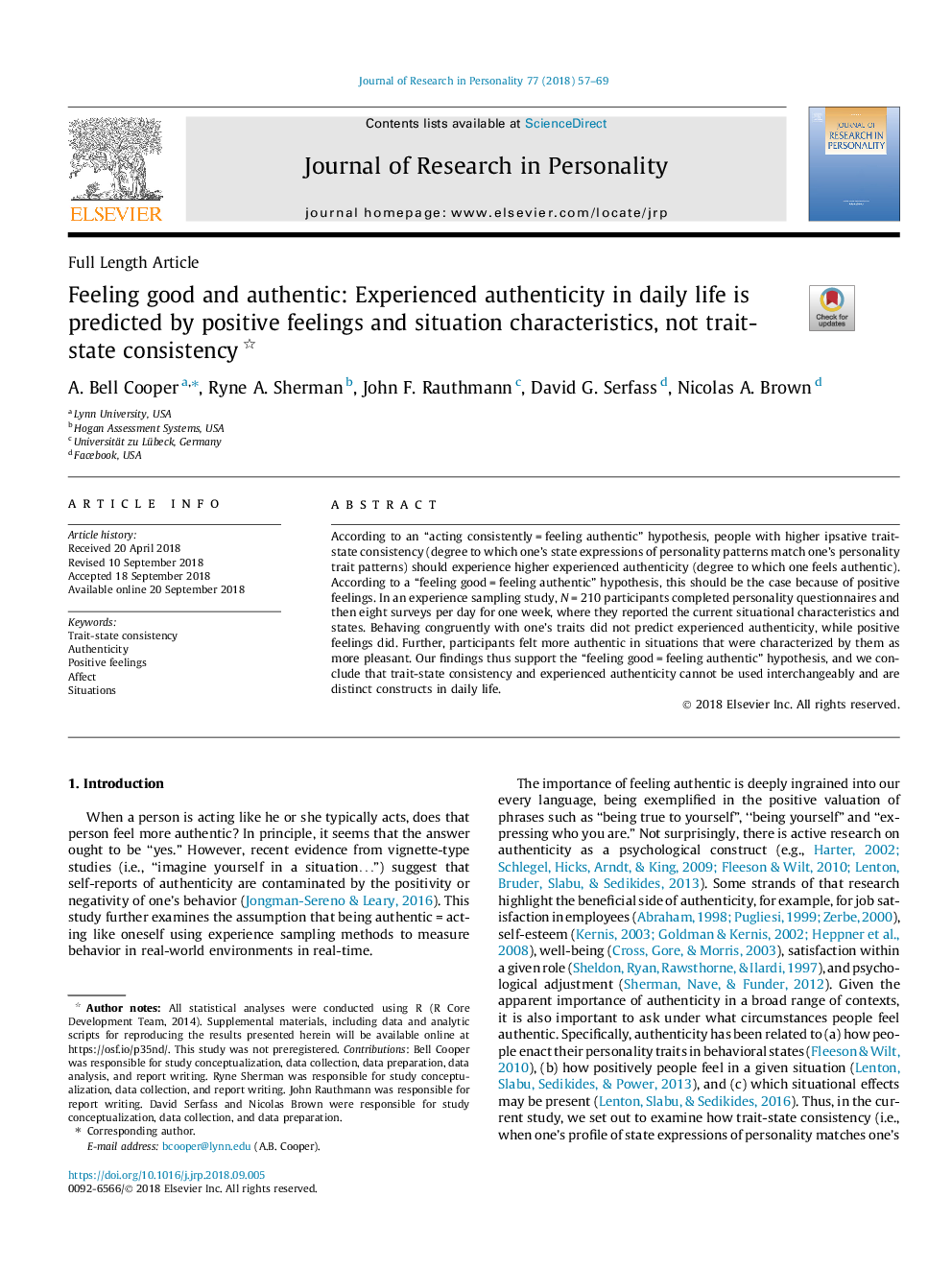| Article ID | Journal | Published Year | Pages | File Type |
|---|---|---|---|---|
| 11027613 | Journal of Research in Personality | 2018 | 13 Pages |
Abstract
According to an “acting consistentlyâ¯=â¯feeling authentic” hypothesis, people with higher ipsative trait-state consistency (degree to which one's state expressions of personality patterns match one's personality trait patterns) should experience higher experienced authenticity (degree to which one feels authentic). According to a “feeling goodâ¯=â¯feeling authentic” hypothesis, this should be the case because of positive feelings. In an experience sampling study, Nâ¯=â¯210 participants completed personality questionnaires and then eight surveys per day for one week, where they reported the current situational characteristics and states. Behaving congruently with one's traits did not predict experienced authenticity, while positive feelings did. Further, participants felt more authentic in situations that were characterized by them as more pleasant. Our findings thus support the “feeling goodâ¯=â¯feeling authentic” hypothesis, and we conclude that trait-state consistency and experienced authenticity cannot be used interchangeably and are distinct constructs in daily life.
Keywords
Related Topics
Life Sciences
Neuroscience
Behavioral Neuroscience
Authors
A. Bell Cooper, Ryne A. Sherman, John F. Rauthmann, David G. Serfass, Nicolas A. Brown,
